Permaculture Design Course December 6-19, 2019
Join a movement which is growing tremendously every day and immerse yourself into a lifestyle that will make a real difference for yourself and this planet.
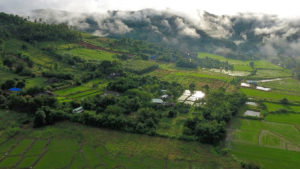 Permaculture is a design system that aligns human communities with the ecological imperatives of a living planet. This includes water harvesting methods, compost and soil management, natural building methods, alternative energy ideas and alternative solutions for trade and markets. The special feature of Permaculture is that all these elements will be integrated into a system where they support each other in a unique way. Permaculture is based on observing nature, these observations teach us how to design ways of living that have the stability and resiliency of natural ecosystems — they show us positive solutions for creating and managing systems for food, medicine, and building materials, as well as relationships with ourselves, animals, and our communities. Permaculture is a way of organizing knowledge, a connecting system that integrates science, art, politics, anthropology, sociology, psychology, and the diverse experiences and resources available in any community.
Permaculture is a design system that aligns human communities with the ecological imperatives of a living planet. This includes water harvesting methods, compost and soil management, natural building methods, alternative energy ideas and alternative solutions for trade and markets. The special feature of Permaculture is that all these elements will be integrated into a system where they support each other in a unique way. Permaculture is based on observing nature, these observations teach us how to design ways of living that have the stability and resiliency of natural ecosystems — they show us positive solutions for creating and managing systems for food, medicine, and building materials, as well as relationships with ourselves, animals, and our communities. Permaculture is a way of organizing knowledge, a connecting system that integrates science, art, politics, anthropology, sociology, psychology, and the diverse experiences and resources available in any community.
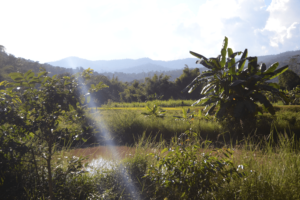 The workshop will take place at Constellation, an 8-year old example of a fully integrated Permaculture site with many exciting examples of Permaculture design. Originating as rice paddies, the farm now boasts a mature food forest with over 75 fruiting species, multiple bamboo and earthen structures, annual and perennial gardens, ponds (one swimmable) and a river. Not only will you be partaking in a two-week long immersion in Permaculture, you will also live with our community and thereby learn how to live and thrive in an intentional community. Our aim is to create a supportive learning community for the duration of the course where trust, compassion, support and connection is built among participants.
The workshop will take place at Constellation, an 8-year old example of a fully integrated Permaculture site with many exciting examples of Permaculture design. Originating as rice paddies, the farm now boasts a mature food forest with over 75 fruiting species, multiple bamboo and earthen structures, annual and perennial gardens, ponds (one swimmable) and a river. Not only will you be partaking in a two-week long immersion in Permaculture, you will also live with our community and thereby learn how to live and thrive in an intentional community. Our aim is to create a supportive learning community for the duration of the course where trust, compassion, support and connection is built among participants.
What is a Permaculture Design Course?
A Permaculture Design Course (PDC) is an internationally-recognized, 72-hour workshop resulting in a Permaculture Design Certificate. It provides an introduction to permaculture design as set forth by movement founder Bill Mollison. The PDC serves as a foundation for further permaculture work and study and is a prerequisite for the Diploma in Permaculture Design, offered through The Permaculture Institute and Gaia University. Credit for this course is now accepted by a growing number of universities around the world. To date, thousands of permaculture designers worldwide have been certified through this course and now comprise a global network of educators, ecological activists, consultants and practitioners who are influencing the decisions of major corporations, small businesses and people from all walks of life to change the way we view and design our landscape, our surroundings, our relationships and our daily lives so we can grow the revolution that our planet needs.
What to expect:
 This PDC promises to be a very unique experience. We teach based on our real life experiences with Permaculture, here at Constellation and around the world. With more than a decade of experience consulting, the two course facilitators have collectively taught more than 25 permaculture design courses, dozens of permaculture workshops, and they have designed and constructed more than 20 earthen buildings, 25 edible perennial landscapes and 30 appropriate technology solutions across four continents. It is our goal to live, breathe and practice Permaculture every day of our lives, and we are enthusiastic to share as much of our knowledge as possible.
This PDC promises to be a very unique experience. We teach based on our real life experiences with Permaculture, here at Constellation and around the world. With more than a decade of experience consulting, the two course facilitators have collectively taught more than 25 permaculture design courses, dozens of permaculture workshops, and they have designed and constructed more than 20 earthen buildings, 25 edible perennial landscapes and 30 appropriate technology solutions across four continents. It is our goal to live, breathe and practice Permaculture every day of our lives, and we are enthusiastic to share as much of our knowledge as possible.
The 72-hours of coursework, required to receive a Permaculture Design Certificate, will be covered over the two-week period. It promises to be a PDC full of energy and excitement, where sessions will be taught to accommodate different learning styles combining lectures, group discussions, visual demonstrations, hands-on participatory learning and other creative ways of teaching Permaculture. In addition to the information presented, many participants say the interpersonal activities and relationships formed during the workshop are what truly shape the experience. Every morning, participants will be able to take part in the existing permaculture activities on the farm. All students are required to be present for the full two weeks if they wish to receive the certificate.
You will learn:
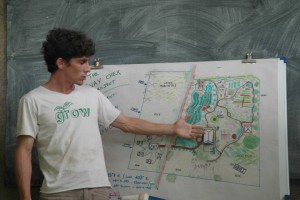
- how to design your own land
- how to grow food just about anywhere
- manage fertility cycles
- repair environmentally damaged lands
- design incredible and long lasting green-buildings
- run successful people-oriented businesses
- how to do the work you love and live meaningful and authentic lives all while building genuine community
You can apply these design principles to small-scale or urban gardens as well as on large-scale farms in any climate or landscape.
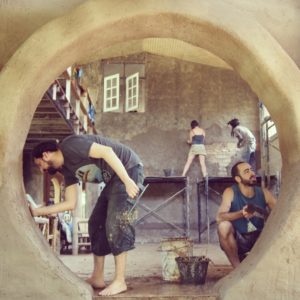
Who is this course for?
- anyone interested in living a more sustainable lifestyle, creating health and well-being for their community, and working towards an abundant, ecologically responsible future
- development and/or aid workers
- project managers looking to bring sustainability to their activities
- backyard gardeners
- farmers and agriculturalists
- landscape designers seeking a more sustainable dimension for their work
- community activists
- homeowners who want to invest in the long-term productivity of their property
- educators
Course Details:
This 2-week program is designed to give participants the inspiration and practical knowledge they need to become a positive change in the world. The course will include a broad range of topics applicable to life anywhere on this planet, tailored to the needs of the students present as well as the location at hand. We will cover every major topic in Bill Mollison’s Permaculture: a Designer’s Manual in the classroom and also in the gardens.
We will focus heavily on the design process so that each participant feels empowered to take the knowledge with them and put it into practice.
The course curriculum is as follows:
- Philosophies and Ethics underlying permaculture
- Permaculture principles and how to apply them in your daily life
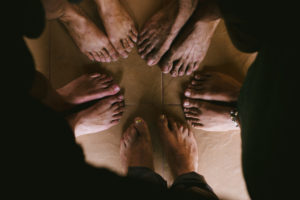
- Patterns in nature, time and space in permaculture design
- Systemic thinking; exploring the connections between elements and how to identify leverage points for change
- Methods of design; how to apply permaculture design tools and strategies to your design problems. How to increase your chances of success by following a well-defined design methodology
- Evaluation and Monitoring; how to follow up on your projects and ensure they are succeeding.
- Climatic factors and strategies for all the major climates and how to work with them
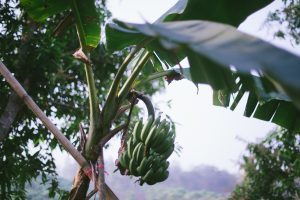
- Trees, forests and forest gardening; how to mimic natural forest systems to create an abundance of food, fiber and fodder
- Home gardening; how to create high yielding, low-input annual gardens for food sovereignty
- Water management, value, catchment, usage and conservation
- Soil; physical, chemical and biological properties of the soil and how to work with the soil food web to build new soils, prevent erosion, create a healthy ecosystem and regenerate degraded land
- Earthworks; shaping the land to realize abundance with mother earth and create positive effects on ecological systems (swales, terraces, ponds, etc.)
- Aquaculture; exploring the symbiotic relationship between fish and plants
 Natural building; how to design climate appropriate structures and build beautiful, spiritually uplifting homes using locally sourced & natural materials
Natural building; how to design climate appropriate structures and build beautiful, spiritually uplifting homes using locally sourced & natural materials- Urban permaculture strategies and approaches
- Alternative systems; bioregional organization, community development, alternative economic systems and permaculture as aid
- Community living and alternative lifestyles that harmonizes people and the planet
As part of the course, participants will help to co-create designs for real world projects that could include elements such as food forests, permaculture-style gardens, natural building, water catchment, irrigation systems and more. Participants will have the opportunity to design their own land or any project they are involved with.
(Please contact us for more information if you are interested in designing your own land or project).
“I heard about PDC from a friend and then found out that it was offered in my neighborhood. I bought 2.5 acres … and wanted to learn more about how to build a sustainable garden there. As I am a facilitator myself and have delivered a lot of training I tend to be a bit saturated and skeptical as a learner, but this course was pretty amazing. The design was great, the flow made sense, I was engaged the entire two weeks and Nick and Greg not only have a wealth of experience and knowledge to share, but they are also excellent facilitators, holding the space, exploring things from different perspectives and creating a safe learning environment. I left enriched and motivated to put what I learned into practice. Greg and Nick, thanks so much. You both are authentic fabulous facilitators and experts of permaculture.”
Claudia, Seattle, Learning & Development Manager, Fortune 100
Constellation:
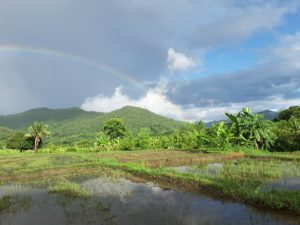 Constellation is a multi-disciplinary project, connecting art, theater, performance, media literacy, science and sustainable design. Permaculture and regenerative design constitute foundational pillars, imbuing the project with an ethical and holistic world view.
Constellation is a multi-disciplinary project, connecting art, theater, performance, media literacy, science and sustainable design. Permaculture and regenerative design constitute foundational pillars, imbuing the project with an ethical and holistic world view.
Constellation is truly a slice of permaculture paradise… it has a very dynamic and diverse agroforestry system. The first fruit tree seedlings were planted in the summer of 2011, and now Constellation produces fresh fruit all year round. The food forest has a very strong canopy layer which is able to support a wide range of plants below. The edible plants in the system are incredibly diverse, including soursop and papaya, 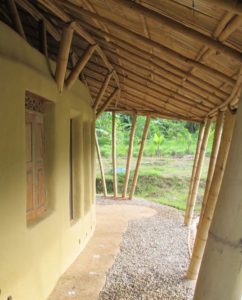 mulberry and jackfruit, limes, lemons and strawberries, pineapple and mango, avocado and rambutan, custard apple and jujube, guava and dates, coconut, bananas and much more.
mulberry and jackfruit, limes, lemons and strawberries, pineapple and mango, avocado and rambutan, custard apple and jujube, guava and dates, coconut, bananas and much more.
We also grow a number of perennial vegetables that form part of our regular diet, as well as cold season annuals like lima and cranberry beans, tomatoes, eggplants and peppers, onions and garlic. During the rainy season we eat various typical tropical vegetables such as okra, long beans, corn, etc.
Cost:
Early Bird Discount (before November 1st: 800 USD or 25,000 THB
Regular Price (after November 1st): 1000 USD or 31,500 THB
Development or Aid Workers : 800 USD or 25,000 THB
This price includes all meals and a place to stay for the duration of the course. Round trip transport from Chiang Mai to the farm is included in the course fee
We ask all registrants to make a deposit of US$100 to secure your spot and the remaining fees be paid in cash during the workshop (Euro, USD, or THB).
**Scholarships are available for low-income people from Thailand or surrounding SE Asia countries.**
“Nick is not only a powerful teacher, he also models permaculture teachings through his devotion and complete surrender to the lifestyle itself. His course is cutting-edge and revolutionary. It is apparent he has researched effective ways of approaching his teaching position, and if you are learned in such areas you will notice this as you tune your ear to him. As if that weren’t enough, he is also authentic, accessible and deeply compassionate. He embraces diversity with genuine nonjudgmental appreciation and he’s a fun loving guy anyone would want to call a friend. His course is about so much more than the amazing knowledge one obtains, it is about peaceful interconnectedness and creating a sense of belonging and community.”
Sarah, LPCI, M.A. Behavioral Therapist
About the Facilitators:
Gregory Crawford

Greg has a decade of experience with small-scale organic farming (market and CSA) as well as earthen architecture (adobe, wattle and cob, earthbag). His project in Detroit, USA was a sustainable renovation of a previously abandoned house; utilizing sustainable alternative systems for all house operations — earthen plasters and paints, rocket mass heater, rainwater catchment, solar system, and composting toilet — successfully kept the entire house off the city grid. Greg is currently developing a pattern language for settlement design.
Nick Tittle
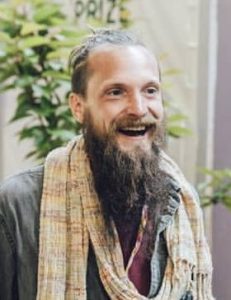 Nick specializes in consulting and teaching about a variety of subjects including natural building, organic gardening, forest gardening, soil food web technology, animal husbandry and alternative economic systems and has consulted in Thailand, China, India, Portugal, Algeria, and the USA. Nick spent three years in Northern Thailand managing volunteers, interns and apprentices at the Panya Project Permaculture and Earthen Building Education Center. Nick is currently working with the Blueprint Alliance on a regenerative toolkit for refugee camp design for the humanitarian sector based upon Permaculture principles and systems thinking.
Nick specializes in consulting and teaching about a variety of subjects including natural building, organic gardening, forest gardening, soil food web technology, animal husbandry and alternative economic systems and has consulted in Thailand, China, India, Portugal, Algeria, and the USA. Nick spent three years in Northern Thailand managing volunteers, interns and apprentices at the Panya Project Permaculture and Earthen Building Education Center. Nick is currently working with the Blueprint Alliance on a regenerative toolkit for refugee camp design for the humanitarian sector based upon Permaculture principles and systems thinking.
The Accommodation:
DORMITORIES: There are two large rooms inside our largest house; each room can accommodate 6-8 people. These rooms are on the second floor of the building and are just a few steps away from a large terrace.
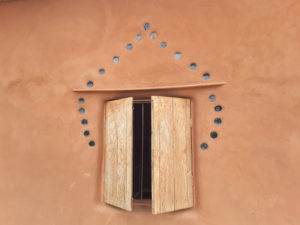 PRIVATE ROOMS: There will be at least two private rooms during the Permaculture Design Course, if you prefer to have your own personal space. Private rooms and $100 extra.
PRIVATE ROOMS: There will be at least two private rooms during the Permaculture Design Course, if you prefer to have your own personal space. Private rooms and $100 extra.
CAMPING: Camping is possible at specific spots. If you would like to camp, please bring your own tent.
Fresh, vegetarian food will be provided throughout the course. Special dietary needs can be accommodated for, but please let us know in advance.
Contact information:
Please feel free to email us at SurplusPermacultureDesign@gmail.com for any additional information you may need.
Earth Care – People Care – Fair Share
 surpluspermaculturedesign
surpluspermaculturedesign